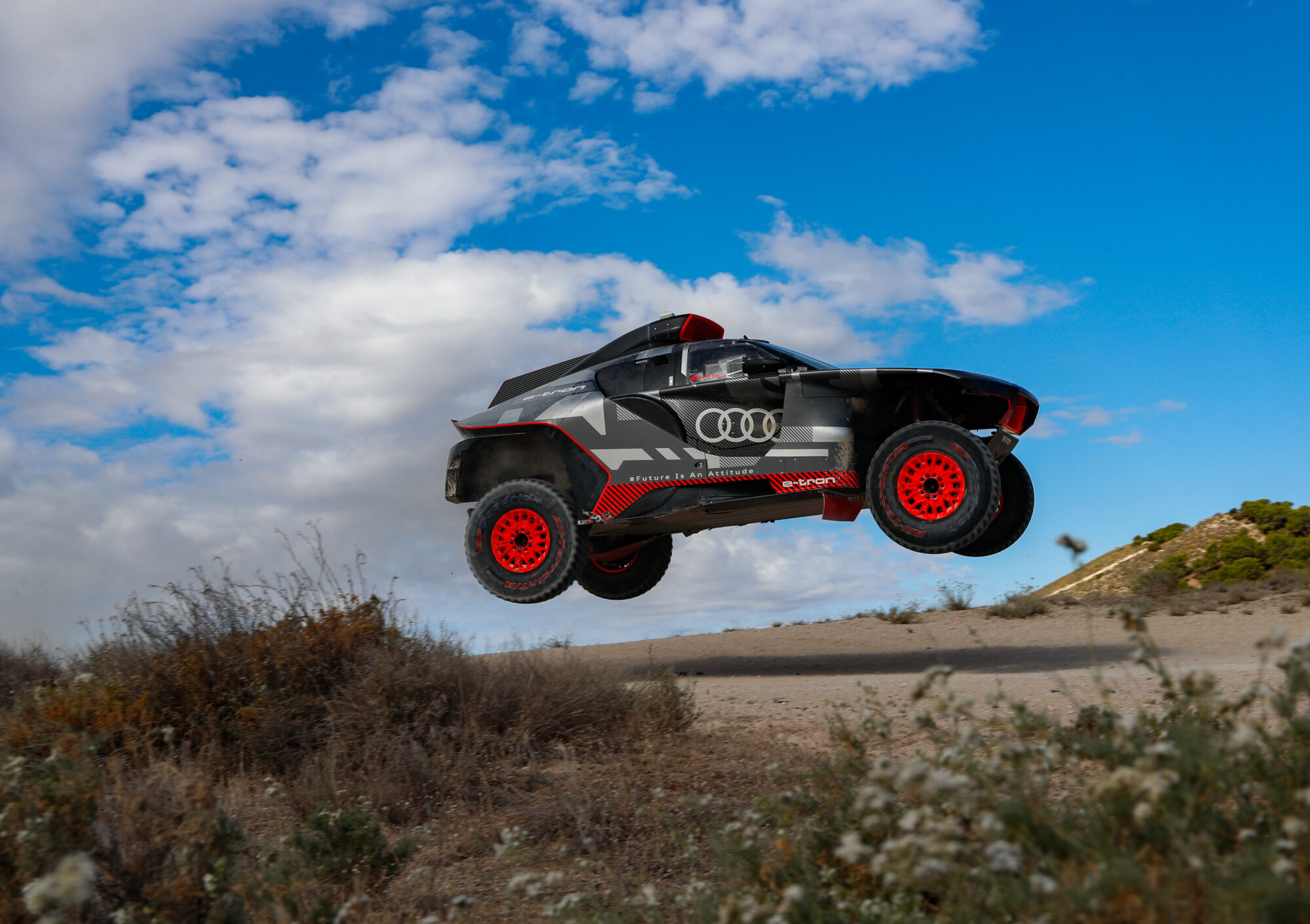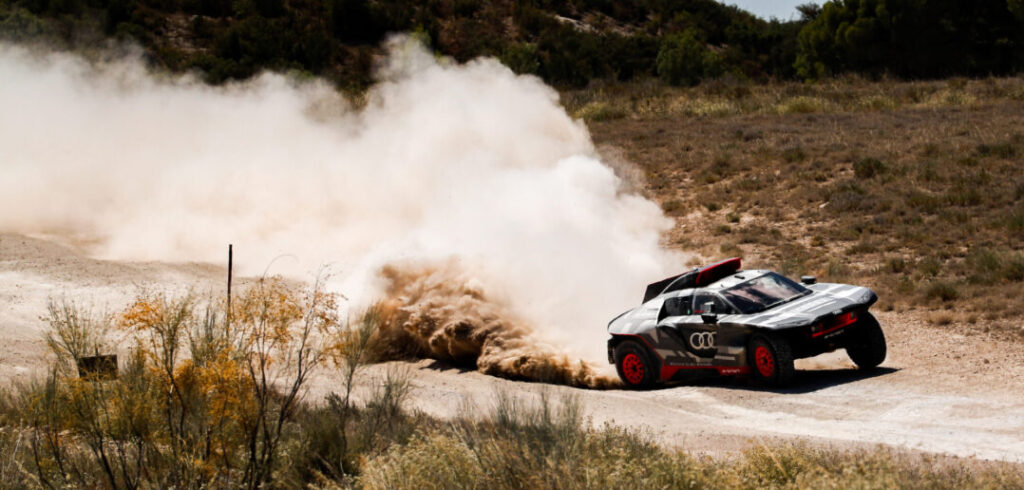Ahead of a Dakar Rally debut in January, the Audi Sport team has recently completed an eight-day endurance test of the Audi RS Q e-tron on gravel roads in the arid Spanish climate.
A functional check of the vehicle was carried out in Neuburg an der Donau, Germany, on June 30, followed by a test on unpaved ground around Magdeburg, Germany, in the middle of July. However, more recently the Audi RS Q e-tron undertook a rigorous test program in Aragon, near the province of Zaragoza in northern Spain.
All of Audi Sport’s driver teams took part in the development and test program, including Dakar record winner Stéphane Peterhansel alongside co-driver Edouard Boulanger, Mattias Ekström and Emil Bergkvist and lastly Carlos Sainz and Lucas Cruz.
“For a first test in proper conditions for the car I’m really happy how the car behaves already,” explained Carlos Sainz when commenting on the vehicle’s handling and reliability. “I had a really good feeling straight away. Of course, there is fine-tuning to be done – but the starting point is good.”
During testing, the Audi RS Q e-tron reached a top speed of 180km/h on a series of 17-kilometer-long gravel roads in temperatures reaching 34°C, verifying the vehicle’s cooling concept and capabilities.
“This test was focused on getting in as much driving as possible and detecting weak spots,” commented Arnau Niubó Bosch, development engineer, Audi, after more than 1,700 test kilometers in extremely harsh conditions. “The next test in September will take us into the dunes for the first time.”
With an all-electric powertrain, the Audi RS Q e-tron features two motor-generator units (MGU), the same as those used in Formula E, alongside a high-voltage battery. This is then recharged while driving by an energy converter made up of a TFSI engine from DTM and an added MGU.




